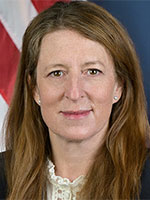ryasick/Getty Images
At a recent two-day virtual meeting, officials with the Federal Motor Carrier Safety Administration asked members of the agency’s motor carrier advisory committee for some ideas on how the agency could improve truck safety.
Committee members responded, offering officials a variety of candid suggestions.
Broadly, the 25-member Motor Carrier Safety Advisory Committee wants the agency to take a closer look at safety data and best practices. Specifically, with the continuing rise in the number of truck-involved fatal crashes, committee members asked the agency to take a close look at its new entrants program. In particular, the committee expressed concern that drivers may not be receiving adequate training, and suggested some may be operating under the agency’s radar by using bogus addresses for agency records and failing to deploy electronic logging devices in their trucks.
After hearing that 43% of commercial motor vehicle drivers and their passengers killed in fatal crashes were not wearing their seat belts, several members of the advisory group suggested that the agency do a full-blown analysis to find out why. The committee also suggested that a rise in the number of medium-truck fatal crashes deserves more research attention. The agency also was urged to collect data on how certain exemptions for drivers and motor carriers impact safety.

Hutcheson
The committee also urged FMCSA to use the industry’s safest drivers as a resource; the agency was encouraged to study and share the best practices of veteran drivers with millions of miles of accident-free driving.
The committee also encouraged FMCSA to continue a pair of agency studies — one on the safety impact of driver detention time standing idle waiting during loading and unloading, and another on how driver compensation impacts driver safety. In particular, the committee asked for more information on whether the method of driver payment has a negative impact on safety.
Among the committee’s other suggestions:
- Encourage motor carriers to utilize technologies that will improve safety.
- For clarification, tweak the definition of what constitutes personal conveyance time.
- Encourage equity by collecting data on driver age and gender with the goal of increasing the number of female truck drivers.
- Drill down on data contrasting the number of urban versus rural crashes, and why they tend to be most often occurring in rural areas.
- Increase agency efforts to respond to recommendations from the National Transportation Safety Board. Too many may have been ignored, some members said.
First chartered in 2006, the MCSAC advises FMCSA leaders on motor carrier safety programs and regulations. MCSAC’s members represent safety enforcement officers, labor groups, trucking leaders, tractor-trailer drivers, motor carrier executives, truck safety nonprofits, and other influencers in the transportation sector. The current chair of the MCSAC is Peter Kurdock, general counsel for the Advocates for Highway & Auto Safety.
The suggested topics for the June 5-6 meetings were part of FMCSA’s solicitation of recommendations for inclusion in the agency’s upcoming strategic plan goals and objectives for 2024-2027, as well as potential suggestions to add to the U.S. Department of Transportation’s National Roadway Safety Strategy.
FMCSA Administrator Robin Hutcheson, kicking off the meeting, told the group their work is essential. “Your experience is so vital to us to do our work. Your mission is our mission too,” she said.
“For this new plan, we’re asking you to consider past achievements, and then help us chart a course for maximum impact on safety,” added meeting facilitator Nora Madonick, who works from DOT’s Volpe National Transportation Systems Center. “Specifically, we’re asking MCSAC to identify which programs and safety initiatives should be our focus over the next four years.”
Madonick said officials will be doing some “housekeeping” on the recommendations by committee members, and will be submitting a letter report to Hutcheson by July 31.






